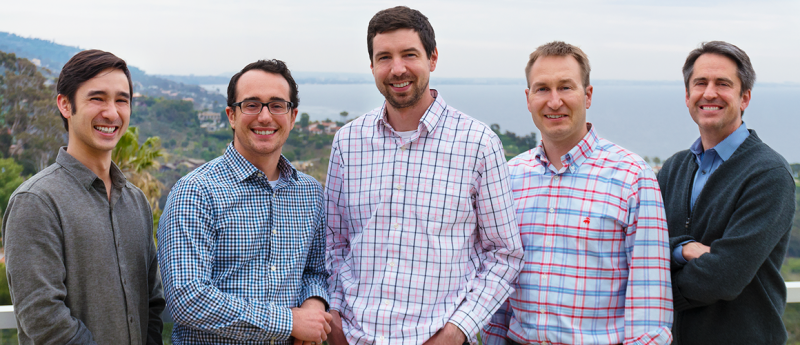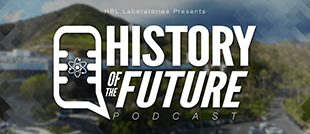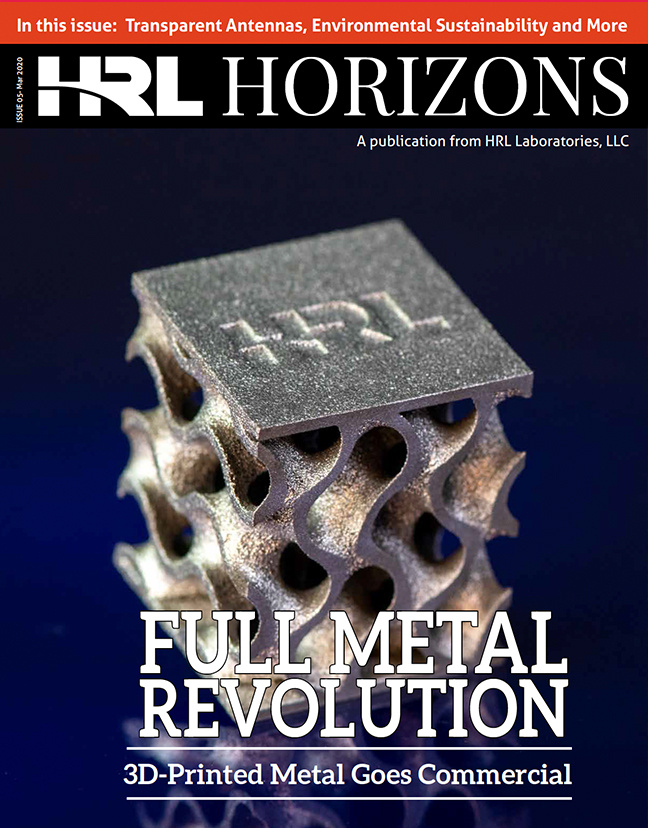
HRL Laboratories Named 2018 Edison Awards Finalist in 3D Printing Category

Edison Awards Nominees (left to right): Brennan Yahata, Zak Eckel, Hunter Martin, Tobias Schaedler, and MML Director Bill Carter (not pictured, Jake Hundley). © 2018 HRL Laboratories.
Malibu-based Company Recognized by “Oscars of Innovation” for Revolutionary Technique That Enables 3D Printing Previously Unprintable High-Strength Materials
HRL Laboratories, LLC, has been named a finalist in the Applied Technology/3D Printing category of the 2018 Edison Awards for their work in microstructure control of 3D printed materials. Often described as “the Oscars of Innovation,” the award is named for Thomas Alva Edison and recognizes the world’s best innovations and innovators. Gold, silver, and bronze award winners will be announced at the 31st Annual Edison Awards Gala held Wednesday April 11, 2018 in New York City.
With Microstructure Control for High Performance Additive Materials, HRL Laboratories has made breakthroughs in metal and ceramic 3D printing technology. Researchers at the famous facility have developed techniques for the production of previously unprintable high-strength aluminum alloys—including types Al7075 and Al6061— and porosity free silicon-based ceramics. This work was recognized with publications in Nature (https://go.nature.com/2HhWzi7) and Science (https://bit.ly/2I9RLgd), respectively, two of the most prestigious scientific journals in the world.
3D printing high-strength aluminum opens the door to additive manufacturing of engineering-relevant aluminum parts. Aluminum alloys crucial for aircraft and automobile parts have been among thousands that were not amenable to additive manufacturing, and the greatest difficulties associated with printing them, including hot cracking, have been solved by the HRL researchers. An added benefit is that their method can be applied to additional alloy families such as high-strength steels and nickel-based superalloys that are difficult to process currently with additive manufacturing. More information is available at https://bit.ly/2yo9kGI.
Technical ceramics are challenging to process in complex geometries due to their brittle nature and high melting temperature. HRL researchers also demonstrated that innovative formulation and processing during additive manufacturing can overcome these limitations. HRL researchers developed a technique that uses pre-ceramic silicon-based polymers that can be 3D printed with conventional UV-based printers. The resulting polymer part can then be heated in a furnace and converted to a fully dense ceramic over 10 times stronger than those made with current techniques. More information is available at https://bit.ly/2IdFZkW.
The innovations developed by HRL have wide-ranging applications including aerospace, automotive, medical devices, and sporting goods. Producing structures from these new classes of materials via additive manufacturing allows designers and engineers to produce products with greater freedom and higher performance than ever before.
HRL Laboratories, LLC, Malibu, California (hrl.com) is a corporate research-and-development laboratory owned by The Boeing Company and General Motors specializing in research into sensors and materials, information and systems sciences, applied electromagnetics, and microelectronics. HRL provides custom research and development and performs additional R&D contract services for its LLC member companies, the U.S. government, and other commercial companies.
Media Inquiries: media[at]hrl.com, (310) 317-5000

